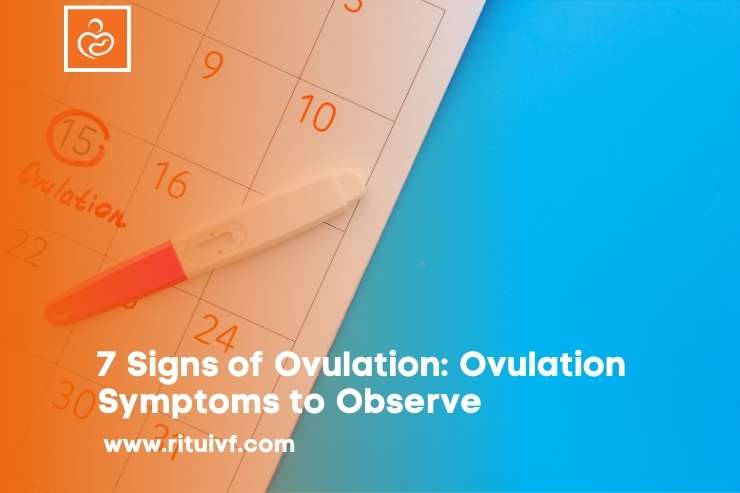A double-marker blood test in pregnancy is a test that is often given to pregnant women to find any problems with the fetus’ chromosomes. In addition, this testing is very important for finding neurological disorders in the fetus, such as Down syndrome and Edwards syndrome.
Fetuses that are girls will have 22 pairs of XX chromosomes and fetuses that are boys will have 22 pairs of XY chromosomes.
But if there are chromosomal problems in the fetus, they could lead to serious birth defects and health problems for the baby after birth. But these problems don’t happen very often.
Women over 35 and those with a family history of birth defects or insulin-dependent type 1 diabetes are more likely to be told to get the double marker test while they are pregnant. The doctor checks the blood during the first three months of pregnancy, most of the time between the ninth and fourteenth week.
Why is a Double Marker Test in Pregnancy Important?
You don’t have to get the test, but if you are over 35 or if someone in your family has had a miscarriage or diabetes, your baby may be more likely to have chromosomal problems.
It’s important to keep in mind that the result only shows if there is a high risk of trisomy. Not only that, but it doesn’t tell you if your child has any problems.
How can Double Marker Blood Tests in Pregnancy Help?
There are several ways to use the Double Marker Test, such as:
- It helps figure out how likely it is that the unborn child will get a mental illness.
- It’s mostly used to find people with Down syndrome.
- The Double Marker Test may also find Trisomy 18, a genetic disorder that can lead to mental illness and serious birth defects.
- It also helps find Trisomy 21.T, a genetic disorder that can lead to mental health problems, heart problems, and other diseases that affect important organs.
What is the Double Marker Test Procedure
The Double Marker test is a blood test that checks the levels of the pregnancy-related plasma protein (PAAP) and the human chorionic gonadotropin hormone (Beta hCG).
Some important things to know about the testing process are:
- Two hormones in a pregnant woman’s blood are looked at by the test to find out her risk of having a child with Down syndrome or other chromosomal problems.
- A simple blood sample is taken, usually from the arm of the woman, for the test.
- For more accurate results, wait until the 11th or 13th week of pregnancy. The test can be done as early as the 10th week of pregnancy.
- After getting the blood sample, the test results are usually ready in a few days to a week.
- If the results show a higher chance of chromosomal problems, you may be told to get more tests to be sure of the diagnosis.
- The doctor or nurse will talk about the test results and any follow-up care that may be needed.
- The test is generally safe and doesn’t hurt too much. The most common side effect is a little pain during the blood draw.
How the Double Marker Test in Pregnancy is done Step-by-Step
You don’t have to take the double-mark test. In any case, it is suggested for pregnant women over 35 who have a high chromosomal challenge.
The blood test is looked at, and an ultrasound test called a nuchal translucency (NT) scan is done. It checks the baby’s clear tissues behind the neck. The test is mostly about two things. Human chorionic gonadotrophin (free beta) and plasma protein A (PAPP-A) are signs of pregnancy.
Free Beta HCG is a glycoprotein hormone made by the placenta while the woman is pregnant. People who have a lot of this hormone in their bodies are more likely to have Trisomy 18 and Down syndrome.
PAPP-A is an important plasma protein. A higher risk of Down syndrome is also linked to low levels of plasma protein.
With the help of a blood test, the amounts of these parts in the blood will also help find out if the baby has problems with his or her brain or chromosomes.
Besides the blood test, the doctor may also do an ultrasonography.
Start Time of Double Marker Test in Pregnancy
During the first trimester or the start of the second trimester, the double marker test should be done. This is because blood was taken for the two-marker test. The test should happen between 11 and 14 weeks from now.
What Should You Expect After The Test?
In pregnancy, the double marker test is just a blood test. Since you don’t have to fast for this test, you can eat and drink before it unless told otherwise.
Based on the lab you choose for your test, the results may be different.
What is the Double Marker Test Normal value?
The results of the Double Marker test can be put into two main groups: positive and negative. The results do not prove for sure that the baby has a problem. It only looks at how likely it is that the baby has the disease. The numbers are given in the form of ratios.
So a ratio of 1:10 to 1:250 will be considered Screen positive, which means there is a good chance the baby has the condition. Also, a ratio of 1:1000 means that the baby is Screen-negative, which means there is a very small chance that the baby has chromosomal or neurological problems.
This test, however, is not enough to be sure that the baby has a problem. If the results are positive, the doctor may order more tests to be sure.
What Should You Do If The Test Comes Back Positive?
There are worse things in the world than having disabled babies. You should feel some worry if the test comes back positive. But it’s important to remember that this is not the end of the story after you’ve thought about the facts. Noninvasive prenatal testing (NIPT), amniocentesis, or chorionic villous sampling are more conclusive but sometimes more invasive tests that may confirm your results. Some of these tests could hurt your pregnancy, but they give you clear answers.
Since the double marker test is done early in your pregnancy, you will have enough time to make important decisions about other tests, medical treatments, and how to best handle your pregnancy and birth.
Knowing your risk could also help you get ready for the possibility of having a baby with special needs and plan for how to help them. These kids may have normal lives like the rest of us, but they need a little extra help.
Cost of a Double Marker Test for Pregnancy
The test cost depends on the city, the quality of the test, and how many people can take it. This test is only available in certain places. The normal range is usually around 2,500 to 3,500 rupees.
Few More Tests For Screening
Genetic Test for Screening
When looking for changes in the baby’s genes, a genetic screening test done before birth is very accurate. We do this because changes in genes can lead to genetic disorders or problems. Genetic tests can be done on pregnant women through the placenta or an amniocentesis, which uses amniotic fluid.
Screening for maternal serum
A double marker screening test and MSS both give the same result. A Neural Tube Defect (NTD) or Down Syndrome is also checked for. Usually, it’s done in the first or early second trimester.
Screening in the first trimester
This is yet another name for two Marker Screening.
Test for Triple Markers During Pregnancy
It checks for three things in the blood: alpha-fetoprotein, human chorionic gonadotropin, and unconjugated estriol. The doctor can figure out if the child is more likely to have birth defects based on the results of the blood test.
Test with Four Markers
Inhibin is a hormone that is released by the placenta. A quadruple marker test is like a triple test, but it also checks for Inhibin. Adding four hormones differs from the triple test, which only has three. The test is also meant to find out if the child has any birth defects. While it can be done at any time during the 22nd week of pregnancy, it is most often done between the 16th and 18th week.
Nt Scan
The double marker blood test in pregnancy is like this scan.
Uterine Doppler scan
The arteries in the uterus are checked for blood flow with this test. The baby’s blood flow can tell you if it will live to full term or not. The chances of getting pre-eclampsia (a high blood pressure condition in pregnancy) are also affected by the flow of blood vessels.
Possible Risks Associated with Diagnostic Tests
There are always some risks and limitations with screening tests, so it’s important to know that none of them give 100% accurate results. The most important things to think about are
Diagnostic tests can give false positives or negatives. False positives show there is a problem when there isn’t one, and false negatives show there is a problem when there is one.
For both amniocentesis and chorionic villus sampling, a needle is put into the uterus to get a sample for testing. The very small chance of miscarriage (less than 1%) is caused by harm to the placenta or an accident to the fetus during the procedure.
At Ritu Fertility Centre, our experts use cutting-edge technology and equipment and offer full counseling and support to help patients make smart choices about their care.
Changes in Lifestyle that might Affect the Test Result
Some changes and habits in daily life also have a big effect on the results of the double marker test. So, it’s important to know about these changes so you can take the right precautions.
If a woman is pregnant and smokes, the amount of PAPP-A in her blood can drop. This could lead to a wrong test result, such as a false-positive result or the wrong interpretation of the test.
Medications: Some medicines, like blood thinners or aspirin, can change the amounts of PAPP-A and β-hCG in the mother’s blood. Before the test, you should let your doctor know about any medicines you are taking.
Weight of the Mother: The accuracy of the test results may be affected by the weight of the mother. Women who are overweight or obese might have lower levels of PAPP-A, which could lead to a false-positive result.
Previous Problems During Pregnancy: Women who have had problems during pregnancy in the past, like a miscarriage or pre-eclampsia, may have different levels of PAPP-A, which can make the test results less accurate.
Age: The test results may not be accurate if the mother is below a certain age. Many chromosomal problems can happen to women over the age of 35, which means that the test results might need to be interpreted differently.
High levels of stress during pregnancy: It can also make it more likely that the test results will not be accurate. To lower your stress levels, it’s important to relax and take care of yourself.
Telling your doctor about any changes in your lifestyle or other things that might affect the accuracy of your test results is a good way to make sure that the results are interpreted correctly and that you get the right follow-up care if you need it.
Conclusion on Double Marker Blood Test in Pregnancy
The double marker test is very important for making sure that pregnant women, especially those who are getting IVF treatment, are healthy. Expectant parents need to know about their baby’s health while they’re pregnant. To do this, doctors recommend several tests, such as the double marker test. The parents decide if their child should take the test, even though the results are only suggestions of possible chromosomal problems and not proof.
If you want to get pregnant or are already pregnant, it’s very important to put your health first and take care of any health problems you may have. This will help you have a safe pregnancy and a healthy baby. Our goal at Ritu Fertility is to help you along this journey and make it as great as it can be. Get in touch with us right away for help.
Check out our blog on sleeping position after IVF: Best Sleeping Position After IVF
FAQs Related Dual Marker Test
-
Is there any risk of getting a double marker test while pregnant?
There are no risks that come with the double marker test. Also, this is a normal blood test that doesn’t hurt you. But you should do what your doctor tells you and call them if you have any questions.
-
Is it necessary to have a second test marker?
You don’t have to. However, it is suggested that you check to see if the risk of chromosomal abnormalities is a possibility or a risk.
-
What if the Double Marker test doesn’t show anything?
If the test results are negative, it’s not likely that your baby will have chromosomal or neurological problems.
-
Is the test with two marks painful?
It’s not painful to do the double marker test because only a small needle is used.




